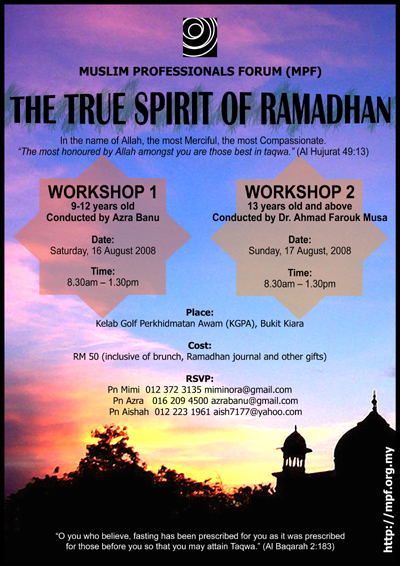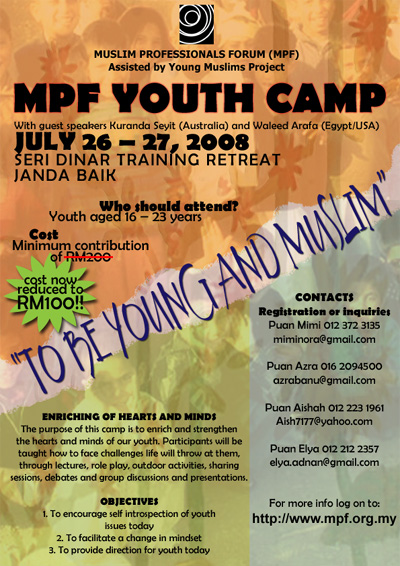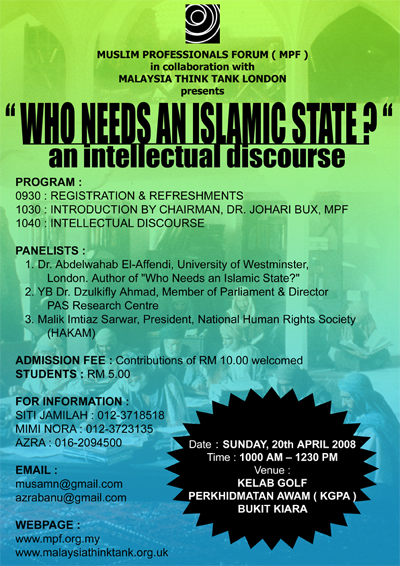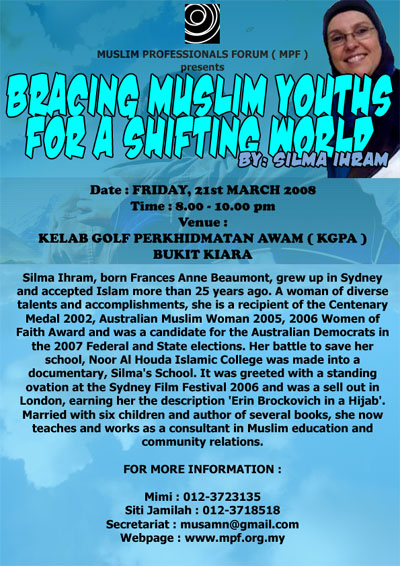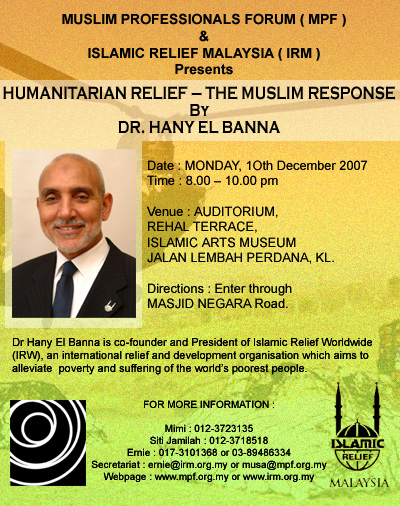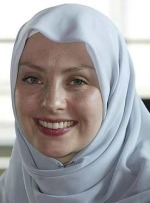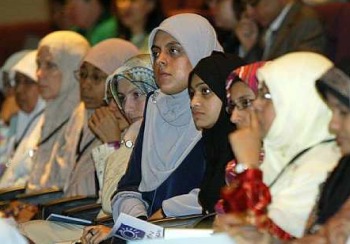The Malaysian DNA Conundrum
by Dr. Sheik Johari Bux, Dr. Farouq Musa, and Dr. Musa Mohd. Nordin
Virtually the whole of Malaysia is now talking about DNA. DNA (Deoxyribonucleic Acid) has become a buzz word, featuring in conversations at coffee shops; offices and even our august parliament.
We must thank Crick and Watson who discovered the double stranded helical structure of the DNA molecule in 1954 which has since unleashed a plethora of advances in biotechnology. Forensic DNA is one of the many breakthroughs in this research in an impassioned endeavour towards advancing justice through DNA technology.
Justice and fairness should be the buzz word of the rakyat, the parliament , political leadership and the impartial media. This unfortunately is a far cry considering the various statements issued and the nuances of the mainstream media. Overnight, a handful of parliamentarians have turned pseudo-geneticists, shouting for surrender of DNA material ! Some have even sentenced the alleged assailant an unequivocal guilty verdict !
Beginning with the end, it is important to emphasise upfront that with all of the available DNA techniques, conviction cannot be based on DNA evidence ALONE if there are a host of other conflicting and non-corroborative evidence. For example, if a victim claimed rape in a condominium in KL whilst the accused was addressing a seminar in Singapore at the material time, no amount of DNA recovered at the crime scene is going to make any difference.
We hope this would moderate the DNA mania which is incessantly hyped, the latest by the father of the alleged victim.
Notwithstanding, what is worrying from the hypothetical case scenario is, how DNA of the alleged assailant got into the condominium. In the language of forensic medicine, there is an outright breach of the chain of custody in this hypothetical case.
Surrendering blood for DNA testing is NOT the central issue in the current stalemate. Maintaining the chain of custody is the CRITICAL factor for any DNA evidence. It demands a strict record of individuals who have had physical possession of the evidence and the process used to maintain and document the chronological history of the evidence. The chain of custody of the specimens must be strictly guarded to ensure the collection, delivery, testing, storage and rigorous documentation of the results are preserved and protected from any unauthorized and illegal access.
The historic trial of 1998 laid bare the extreme flaws of the country’s DNA squad, by design or otherwise. The grave concern from all quarters, national and international on the conduct of the current investigation is understandable and reasonable given the experience we were subjected to the last time this play was enacted. The accused and family who endured those humiliating moments of the last sham trial must be gutted by this sequelae.
We offer below a short brief on DNA as an idiots guide to the correct medical procedures to be followed in cases of alleged sodomy. It is grounded on back to basics forensic medicine, founded on evidence and not emotions.
- If the alleged victim claimed “the latest violation” on 26th June 08, had “counsel on 27th June 08 and reported to police on 28th June 08, it is highly likely that nature’s most efficient plumbing system would have flushed out whatever foreign fluids and tissue deposited within that most currently spoken of orifice. Almost all humans need to answer the big call at least once a day!
- Notwithstanding the above, if indeed the alleged accused’s specimen was obtained from the “hole”, it would be imperative to verify the authenticity of the collection to ensure no foul play was involved in collecting the specimen.
- DNA from the sample obtained in (2) can then be readily compared with the DNA fingerprint of the accused, assuming his DNA profile from the last trial had been safely archived. That is the role of the National DNA Database. It is hence nonsensical for the incessant calls for the accused to give his fresh blood to perform a match with the sample from (2). Unless of course in typical Malaysia Bolehland fashion, the accused’s DNA fingerprint records have gone missing! This then does not speak well of the professionalism of the investigating team. But then again it is but a recurring theme in so many other investigations of late.
- The prime minister and the deputy IGP, amongst others have insinuated that old DNA from 10 years ago is of little or no use in the current saga. Let it be known by all and sundry that there is no expiry of DNA. For purposes of DNA fingerprinting alone, even the Jurassic dinasours DNA can be analysed , unless of course there is a sinister intention for use of the accused’s fresh DNA that is almost unthinkable.
We offer the following solution to the current impasse for the authorities kind consideration :
If at all it is legally required for the DNA of the accused to be analysed from a fresh blood sample, the following is the recommended procedure.
There must be three specimens
- Blood from the accused
- Blood from the alleged victim
- Specimen from the “hole”
There must be two aliquots (portions) of each specimen and these must be presented concurrently to prevent any tampering by either or both parties. The chain of custody of the specimens must be strictly adhered.
DNA analysis of the three specimens can then be conducted independently by a laboratory of their choice (both parties getting 1 aliquot of each specimen). A holding watch of each process can be agreed upon.
DNA matching from the above can then be used as corroborative evidence to either acquit or convict. DNA does not lie provided humans handling them don’t.
As all Malaysian citizens would have realized by now, politics and medicine is a very volatile mix. The political sodomy of medicine in the trial of 1998 should make all of us even more wary of the innuendos which the current saga brings to fore.. This, despite the exclusion of the IGP and AG from the investigating and prosecuting teams and all the assurances from the powers that be.
The Malaysian public in particular and interested parties around the world awaits the truth of the matter in this episode of “Sodomy Malaysian Style”. We pray that this time around truth will not be sacrificed at the altar of political gamesmanship!
In ALLAH we trust and HE knows best.
